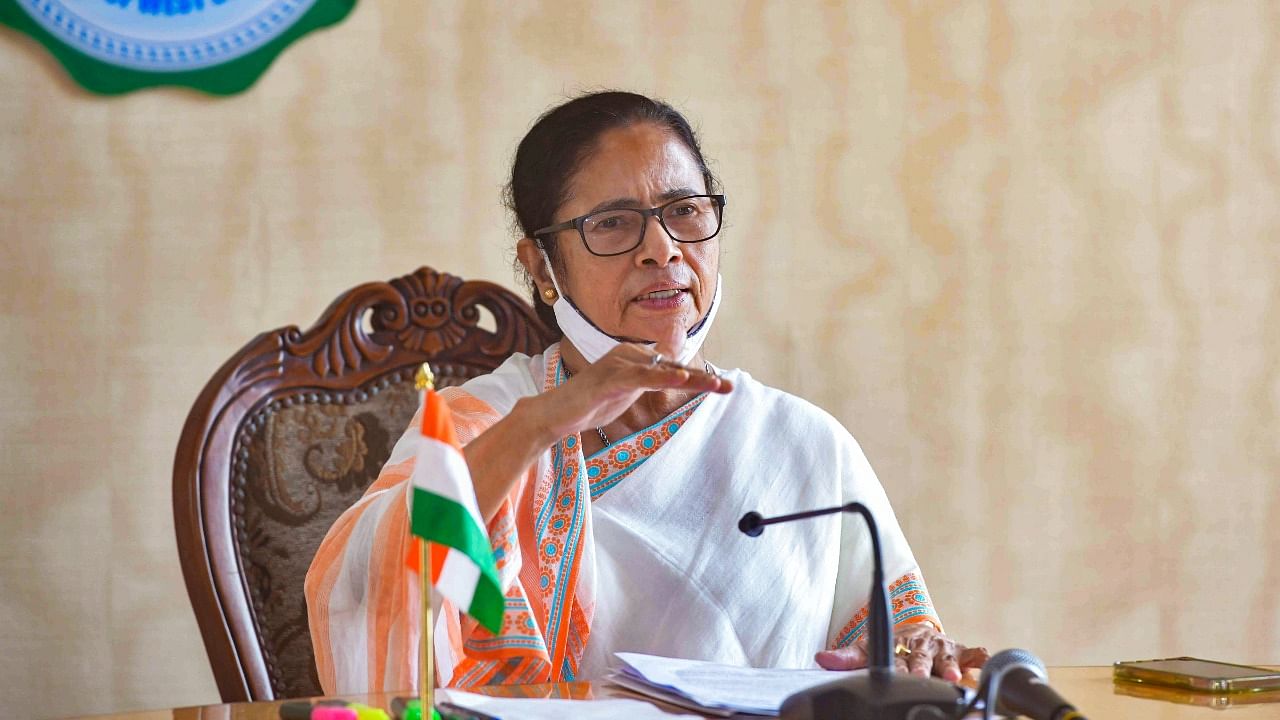
Resurgent after her re-election, West Bengal Chief Minister Mamata Banerjee is on a short reconnaissance to explore Opposition unity for the 2024 general election. If the regional parties start working together now, she says, no one can stop a "political toofan (storm)" when the time comes.
Her election strategist Prashant Kishor may have planted the seed of ambition in her mind to lead the Opposition to victory. However, she claims ignorance about who would lead the Opposition saying she was no "political astrologer".
By meeting Sonia Gandhi and Rahul Gandhi, leaders of the only national, even if somewhat ramshackle, party, Banerjee is testing the waters. Leaders of regional parties like Sharad Pawar of the Nationalist Congress Party and Uddhav Thackeray of the Shiv Sena in Maharashtra, and YS Jaganmohan Reddy of the YSR Congress in Andhra Pradesh also seem convinced that an effective Opposition-formation must include the Congress.
However, Banerjee's announcement of a two-judge commission of enquiry into the Pegasus surveillance scandal before coming to Delhi looks like one-upmanship vis-à-vis the rest of the Opposition, demanding either a parliamentary probe or a judicial inquiry. Inexplicably after ordering an inquiry, Banerjee now wants a Supreme Court supervised investigation.
She should have known that Section 3 of the Commissions of Inquiry Act 1952 clearly states that if a state government has already ordered an inquiry into a subject of public importance, "the Centre shall not appoint another Commission to inquire into the same matter" - unless it wants to expand the scope of the inquiry to two or more states.
Banerjee says that she was prompted to act by the Centre's inaction. However, she has not explained why she did not consult other opposition parties. Their leaders have also been ostensible targets of Pegasus surveillance. In her exuberance to take on the Modi government, Banerjee seems to have lost sight of the need to work together with the parliamentary Opposition.
To bring the enquiry within the jurisdiction of West Bengal, her government has cited the impact the spying scandal has had on public order and the police – both matters which lie in the State List. However, the Centre could ask the Supreme Court to dismiss the West Bengal Inquiry, arguing that the transgressions, if any, fall within the competencies assigned to it in the Union List (i.e. posts and telegraphs, telephones, wireless, broadcasting and other like forms of communication).
If Banerjee wants to lead a national Opposition front against the BJP, she will also have to temper her ambition with some realism. Her party, the Trinamool Congress (TMC), returned to power by decimating not the BJP but the parties of the Opposition in Bengal, the Congress and the Left. While the BJP failed to get the 200 plus seats central to its election hype, its seat tally went up from 3 in 2016 to 77 in 2021 and its vote share from 10 per cent to 38.13 per cent.
Also Read | Didi's national gambit to push Modi's hand
That the Congress lost constituencies considered its home turf like Malda and Murshidabad suggests that Muslim voters chose to abandon it and the Left parties to strategically vote for the TMC. In the extreme polarisation of the election by the BJP, they probably saw the TMC as the only party capable of forming a government and preventing a communal tsunami. However, different factors could determine their voting behaviour in 2024. Also, after bottoming out, the electoral prospects of the Congress and BJP can only improve in West Bengal.
So can Banerjee win all 42 Lok Sabha seats from her state in 2024? In 2019 TMC won 22, BJP 18 and the Congress 2. If the Congress wins more than 42 seats from the rest of India, can Banerjee justifiably claim to be the national leader of the Opposition post-2024? Will the DMK, for example, then go with her or with the Congress?
If the Congress with its all-India reach emerges as the largest anti-BJP party (although it is incompetent enough to lose that position), then would it support a government led by Banerjee as it did in 1996 with the HD Devegowda government and then the one led by IK Gujral, which it knew could be brought down easily? Its experiment with the Maharastra Vikas Aghadi alliance suggests that the Congress is now more interested in sharing power than bolstering someone else's power ambitions. There could, therefore, be many imponderables in Banerjee's way.
It is also possible that Banerjee is being encouraged to test the waters by Sharad Pawar. He nurtures national ambitions and may reveal his cards at a more appropriate stage. Banerjee has done well to initiate early efforts for Opposition unity. However, a more collegial approach without one-upmanship is likely to be more productive not only for her but also for the Opposition.
(The writer is a journalist based in Delhi)